"Deliciously creative, the variety astonishes. Intellectual skyrockets of stunning brilliance. Nobody in the world is doing what Edge is doing...the greatest virtual research university in the world.
— Denis Dutton, Founding Editor, Arts & Letters Daily
[ED NOTE: It’s summer and a good time to reflect on twenty years of Edge. Each week through the rest of the season, we will revisit five highlights from the Edge archives worthy of your time and attention. — JB]
THE NEUROLOGY OF SELF-AWARENESS
Vilayanur Ramachandran
[January 8, 2007]
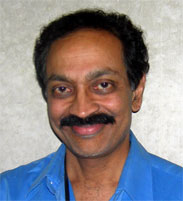
What is the self? How does the activity of neurons give rise to the sense of being a conscious human being? Even this most ancient of philosophical problems, I believe, will yield to the methods of empirical science. It now seems increasingly likely that the self is not a holistic property of the entire brain; it arises from the activity of specific sets of interlinked brain circuits. But we need to know which circuits are critically involved and what their functions might be. It is the "turning inward" aspect of the self—its recursiveness—that gives it its peculiar paradoxical quality.
THE ENERGY OF EMPTY SPACE THAT ISN'T ZERO
Lawrence Krauss
[July 5, 2006]

I invited a group of cosmologists, experimentalists, theorists, and particle physicists. Stephen Hawking came. We had three Nobel laureates: Gerard 't Hooft, David Gross, Frank Wilczek; well-known cosmologists and physicists such as Jim Peebles at Princeton, Alan Guth at MIT, Kip Thorne at Caltech, Lisa Randall at Harvard; experimentalists, such as Barry Barish of LIGO, the gravitational wave observatory; we had observational cosmologists, people looking at the cosmic microwave background; we had Maria Spiropulu from CERN, who's working on the Large Hadron Collider—which, a decade ago, people wouldn't have thought it was a probe of gravity, but now due to recent work in the possibility of extra dimensions it might be.
LAYERS OF REALITY
Sean Carroll
[May 28, 2015]
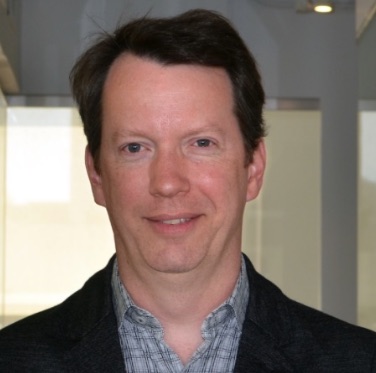
We know there's a law of nature—he second law of thermodynamics—that says that disorderliness grows with time. Is there another law of nature that governs the complexity of what happens? That talks about multiple layers of the structures and how they interact with each other? Embarrassingly enough, we don't even know how to define this problem yet. We don't know the right quantitative description for complexity. This is very early days. This is Copernicus, not even Kepler, much less Galileo or Newton. This is guessing at the ways to think about these problems.
EINSTEIN AND POINCARE
Peter Galison
[June 22, 2003]
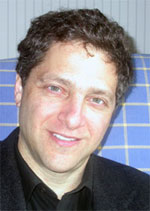
I'm interested in bending the edges of the spectrum to make the abstract and the concrete hit one another more directly.
MOUSE MODELS
Azra Raza
[January 1, 2014]

It's time to let go of the mouse models—at least, as surrogates for bringing drugs to the bedside. Remember what Mark Twain said: "What gets us into trouble is not what we don't know; it's what we know for sure that just ain't so."
INNOVATION ON THE EDGES
Joichi Ito
[June 21, 2012]

Today, what you want is to have resilience and agility, and you want to be able to participate in, and interact with the disruptive things. Everybody loves the word "disruptive innovation." Well, how and where does disruptive innovation happen? It doesn't happen in the big planned R&D labs; it happens on the edges of the network. Most important ideas, especially in the consumer Internet space, but more and more now in other things like hardware and biotech, you're finding it happening around the edges.
DIGITAL REALITY
Neil Gershenfeld
[January 23, 2015]
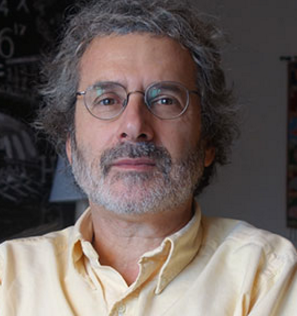
Today, you can send a design to a fab lab and you need ten different machines to turn the data into something. Twenty years from now, all of that will be in one machine that fits in your pocket. This is the sense in which it doesn't matter. You can do it today. How it works today isn't how it's going to work in the future but you don't need to wait twenty years for it. Anybody can make almost anything almost anywhere.
REINVENTING SOCIETY IN THE WAKE OF BIG DATA
Alex Pentland
[August 30, 2012]
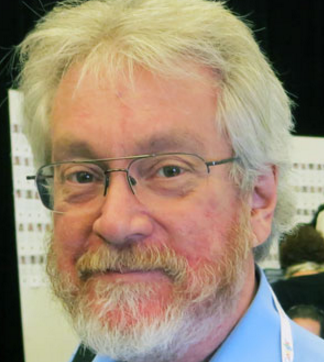
With Big Data we can now begin to actually look at the details of social interaction and how those play out, and are no longer limited to averages like market indices or election results. This is an astounding change. The ability to see the details of the market, of political revolutions, and to be able to predict and control them is definitely a case of Promethean fire—it could be used for good or for ill, and so Big data brings us to interesting times. We're going to end up reinventing what it means to have a human society.
TO BRING BACK THE EXTINCT
Ryan Phelan
[August 28, 2012]
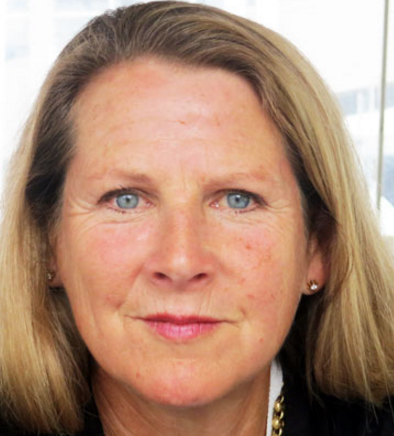
One of the fundamental questions here is, is extinction a good thing? Is it "nature's way?" And if it's nature's way, who in the world says anyone should go about changing nature's way? If something was meant to go extinct, then who are we to screw around with it and bring it back? I don't think it's really nature's way. I think that the extinction that we've seen since man is 99.9 percent caused by man.
WE NEED A MODERN ORIGIN STORY: A BIG HISTORY
David Christian
[May 21, 2015]

I'm increasingly thinking that this idea that modernity puts us in a world without meaning—philosophers have banged on about this for a century-and-a-half—may be completely wrong. We may be living in an intellectual building site, where a new story is being constructed. It's vastly more powerful than the previous stories because it's the first one that is global. It's not anchored in a particular culture or a particular society. This is an origin story that works for humans in Beijing as well as in Buenos Aires.
It's a global origin story, and it sums over vastly more information than any early origin story. This is very, very powerful stuff. It's full of meaning. We're now at the point where, across so many domains, the amount of information, of good, rigorous ideas, is so rich that we can tease out that story.
SHAMING AT SCALE
Jennifer Jacquet
[November 18, 2014]

Shaming, in this case, was a fairly low-cost form of punishment that had high reputational impact on the U.S. government, and led to a change in behavior. It worked at scale—one group of people using it against another group of people at the group level. This is the kind of scale that interests me. And the other thing that it points to, which is interesting, is the question of when shaming works. In part, it's when there's an absence of any other option. Shaming is a little bit like antibiotics. We can overuse it and actually dilute its effectiveness, because it's linked to attention, and attention is finite. With punishment, in general, using it sparingly is best. But in the international arena, and in cases in which there is no other option, there is no formalized institution, or no formal legislation, shaming might be the only tool that we have, and that's why it interests me.
WHY CITIES KEEP GROWING, CORPORATIONS AND PEOPLE ALWAYS DIE, AND LIFE GETS FASTER
Geoffrey West
[May 23, 2011]
THE ARGUMENTATIVE THEORY
Hugo Mercier
[April 27, 2011]
WHEN WE CANNOT PREDICT
An Edge Special Event
Bruce Parker
[March 25, 2011]
REASONABLE DOUBT
Rebecca Newberger Goldstein
[July 28, 2006]
STEWART BRAND MEETS THE CYBERNETIC COUNTERCULTURE
Fred Turner
[October 2, 2006]
DECEIT AND SELF-DECEPTION
Robert Trivers
[May 30, 2006]
WHO'S AFRAID OF THE THIRD CULTURE?
Gloria Origgi
[April 30, 2006]
MIRROR NEURONS AND THE BRAIN IN THE VAT
Vilayanur Ramachandran
[January 9, 2006]
THE PATTERN OF LIFE'S HISTORY
Stephen Jay Gould
[May 23, 2001]
IS LIFE ANALOG OR DIGITAL?
Freeman Dyson
[3.13.01]
THE EMERGENT SELF
Francisco Varela
[May 1, 1996]
GAIA IS A TOUGH BITCH
Lynn Margulis
[May 1, 1996]
THE CHEF
Nathan Myhrvold
[January 23, 1997]
ORGANS OF COMPUTATION
Steven Pinker
[January 10, 1997]
THE END OF TIME
Julian Barbour
[August 15, 1999]
IT'S A MUCH BIGGER THING THAN IT LOOKS
David Deutsch
[November 19, 2000]
WAKE-UP CALL FOR EUROPE TECH
Frank Schirrmacher
[July 9, 2005]
A GOLDEN AGE OF COSMOLOGY
Alan Guth
[December 2, 2001]
HE CONFUSES 1 AND 2 AND THE 200 I.Q.
James Lee Byars, John Brockman
[July 16, 1997]
WHAT EVOLUTION IS
Ernst Mayr
[December 31, 1999]
AN EPIDEMIOLOGY OF REPRESENTATIONS
Dan Sperber
[July 26, 2005]
A THEORY OF ROUGHNESS
Benoit Mandelbrot
[December 19, 2004]
A MADMAN DREAMS OF TURING MACHINES
Janna Levin
[August 14, 2005]
THE SCIENCE OF GENDER—A DEBATE
Elizabeth Spelke, Steven Pinker
[May 16, 2005]
SIGNATURES OF CONSCIOUSNESS
Stanislas Dehaene
[November 24, 2009]
WHY SEX DIFFERENCES MATTER: THE DARWINIAN PERSPECTIVE
Helena Cronin
[September 30, 2009]
HEADCON '14
WHAT'S NEW IN SOCIAL SCIENCE?
Sarah-Jayne Blakemore, Molly Crockett, Jennifer Jacquet, Michael McCullough, Hugo Mercier, L.A. Paul, David Rand, Lawrence Ian Reed, Simone Schnall, Fiery Cushman, Joshua Knobe, David Pizarro, and Laurie Santos
[September 2014]
HEADCON '13
WHAT'S NEW IN SOCIAL SCIENCE?
Sendhil Mullainathan, June Gruber, Fiery Cushman, Rob Kurzban, Joshua Greene, Laurie Santos, Joshua Knobe, David Pizarro, Daniel C. Dennett, Daniel Kahneman, Anne Treisman, and Jennifer Jacquet
[September 2013]
THE NEW SCIENCE OF MORALITY
Roy Baumeister, Paul Bloom, Joshua Greene, Jonathan Haidt, Sam Harris, Joshua Knobe, Elizabeth Phelps, and David Pizarro
[July 20, 2010]
EDGE MASTER CLASS 2009
A SHORT COURSE ON SYNTHETIC GENOMICS
George Church and J. Craig Venter
[July 24, 2009]
EDGE MASTER CLASS 2008
A SHORT COURSE IN BEHAVIORAL ECONOMICS
Richard Thaler, Sendhil Mullainathan, and Daniel Kahneman
[July 25, 2008]
LIFE: WHAT A CONCEPT!
Freeman Dyson, J. Craig Venter, George Church, Robert Shapiro, Dimitar Sasselov, and Seth Lloyd
[August 25, 2007]
CONSCIOUSNESS IS A BIG SUITCASE
Marvin Minsky
[February 26, 1998]
"ARISTOTLE" (THE KNOWLEDGE WEB)
W. Daniel Hillis
[May 6, 2004]
ON THE NATURE OF MATHEMATICAL CONCEPTS: WHY AND HOW DO MATHEMATICIANS JUMP TO CONCLUSIONS?
Verena Huber-Dyson
[February 15, 1998]
RECURSION AND HUMAN THOUGHT
Daniel L. Everett
[June 11, 2007]
INTELLIGENCE AUGMENTATION
Pattie Maes
[January 20, 1998]
THE IMPLICIT ASSOCIATION TEST
Mahzarin Banaji, Anthony Greenwald
[February 12, 2008]
HOW TO GET RICH
Jared Diamond
[June 6, 1999]
A HISTORY OF VIOLENCE
Steven Pinker
[September 27, 2011]
CROSSING CULTURES
Mary Catherine Bateson
[October 11, 2000]
